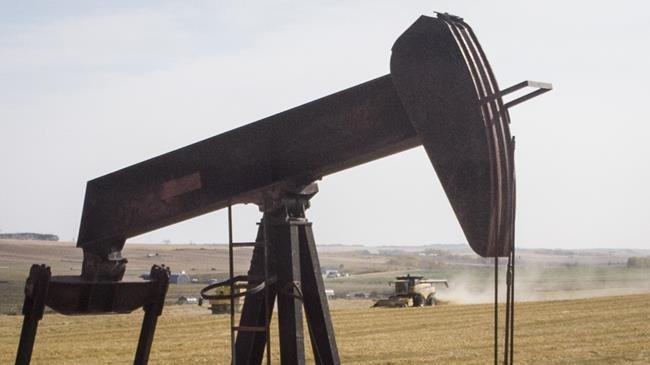CALGARY — Canada's oil and gas producers are expected to maintain spending discipline in 2021 as optimism from stronger oil prices is offset by fears of weak demand due to new strains of the COVID-19 pandemic.
Big changes in spending plans are unlikely as senior members of the energy industry roll out fourth-quarter results over the next few weeks, starting with oilsands and refining giants Imperial Oil Ltd. and Suncor Energy Inc. next week, said analyst Matt Murphy of Tudor Pickering Holt and Co. on Wednesday.
Nor does he expect surprises on Thursday when oilsands producer Cenovus Energy Inc. unveils its first capital budget after buying rival Husky Energy Inc. in an all-shares deal at the end of 2020 — a deal expected to potentially result in more than 2,000 layoffs.
"It's still a very uncertain near-term demand picture," said Murphy in an interview.
"There's optimism, somewhat cautioned with the near-term uncertainties, but as we look back on a very challenging 2020, the view for 2021 and beyond is certainly looking quite a bit more optimistic."
Benchmark West Texas Intermediate oil prices averaged US$42.63 per barrel in the last three months of 2020 and US$52.03 in the first 26 days of January, a substantial rebound from the third quarter's US$40.90 per barrel and US$27.95 in the second quarter.
U.S. benchmark gas prices were up 27 per cent in the fourth quarter compared with the third.
The S&P/TSX Capped Energy Index, based on the market values of Canada's largest oil and gas companies, has gained 41 per cent in the past three months but remains down nearly 30 per cent compared with a year ago and over 38 per cent compared with five years ago.
The fourth-quarter oil price rally and continued strong natural gas prices are expected to set the stage for a strong finish to an "immensely challenging 2020" for most energy producers, said RBC analyst Greg Pardy in a recent report.
"While fourth-quarter results are likely to include year-end housekeeping items, this quarter should constitute much smoother sailing for the lion’s share of producers after resetting their cost structures in the second and third quarters," he said.
He added he also doesn't expect to see any change in producer focus on cost and capital spending controls.
When Cenovus announced the Husky takeover in October, it said it would target annual savings of $1.2 billion, largely achieved within the first year, with about $400 million to come from "workforce optimization,'' along with savings from IT and procurement.
The combined companies are expected to be able to sustain output at about 750,000 barrels of oil equivalent per day for about $2.4 billion a year, 25 per cent less than required separately, Cenovus CEO Alex Pourbaix said at the time.
Both Pardy and CIBC analyst Dennis Fong expect the 2021 budget to be set at or near that level, with little in the way of new spending to grow production.
"It's really a focus for (Cenovus) of leverage reduction and balance sheet repair, much the same as many in the industry," agreed Murphy.
While U.S. President Joe Biden's decision to kill the Keystone XL oil pipeline last week was a long-term negative for the sector, analysts say it won't affect the short-term plans of Canadian oil producers.
That's because the Line 3 replacement pipeline and the Trans Mountain expansion are expected to provide nearly one million barrels a day of export capacity, more than enough to account for the sector's very modest growth plans over the next couple of years, said Murphy.
Peter Danner, a partner in the Calgary office of Torys, says he expects to see more demand for his law firm's advice as energy producer clients continue to consolidate operations this year.
"Companies are seeking scale to remain relevant and a lot of these transactions, too, are driven by cleaning up balance sheets and some by rebalancing of asset mix, moving more toward natural gas in line with long term trends people are seeing," he said in an interview.
The big deals will spawn smaller transactions as buyers put non-core assets on the market after the deals are closed, he added.
This report by The Canadian Press was first published Jan. 27, 2021.
Companies in this story: (TSX:IMO, TSX:CVE, TSX:SU)
Dan Healing, The Canadian Press


